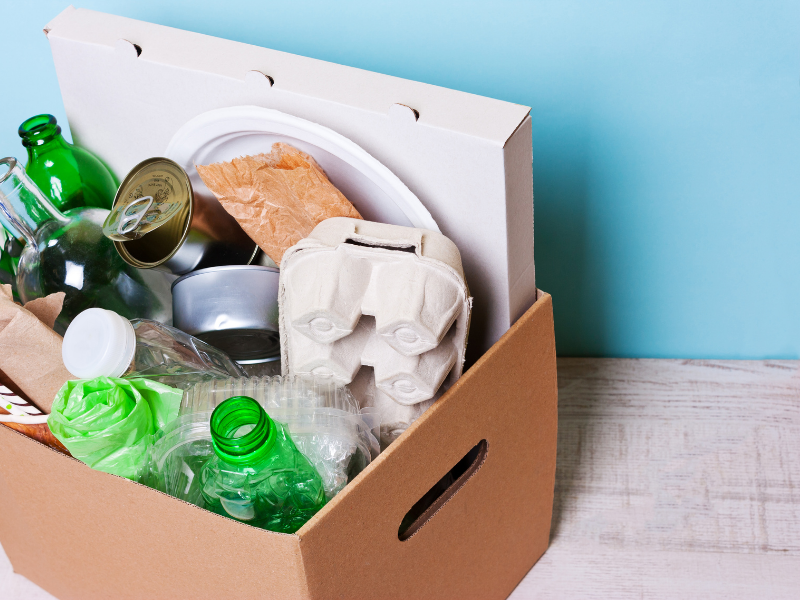Small Actions Lead to Big Results
Residents in the town of Lee, NH should be proud. In the month of November 2021, their small, individual acts of recycling for the past several months led to nearly $39,000 in revenue for their town. This is a great example of a town Recycling with Results! But how did they make it happen?
First, individual community members rinsed out, collected, and then separated their plastic bottles and jugs, aluminum cans, scrap metal, cardboard, and paper at the transfer station. By making sure they were only recycling items that could be processed, they helped make sure their recyclables remained clean and uncontaminated. This means that items that cannot generally be processed at your local transfer station - such as single use plastic bags - were tossed in the garbage and not the recycling bin. It also means that items that can be processed were recycled, instead of being thrown in with other solid waste that ends up in our limited landfills.
Once the Lee Transfer Station had enough clean bales of recyclables, they reached out to NRRA to facilitate the sale of these recyclables to vendors who turn the recyclables into raw material, ready to be manufactured into something new.
NRRA prides itself in working with high quality vendors across North America. In this one month, for example, recyclables from Lee went to vendors in New Hampshire, Massachusetts, New York, Vermont, Michigan, and Ontario, Canada.
The money generated from the sale of Lee's recyclables resulted in revenue for the town. This helps offset costs associated with solid waste removal and processing. Additionally, even if recycling comes at a cost, which is sometimes the case, that is often less than the cost of throwing it in a landfill.
With more and more residents joining in, the town of Lee is a great example of Recycling Right, with each resident taking a small action that leads to BIG results for their town and community!
*This material is based upon work supported under a grant by the Rural Utilities Service, United States Department of Agriculture. Any opinions, findings, and conclusions or recommendations expressed in this material are solely the responsibility of the authors and do not necessarily represent the official views of the Rural Utilities Service. Rural Community Assistance Partnership, Inc., is an equal opportunity provider and employer.
